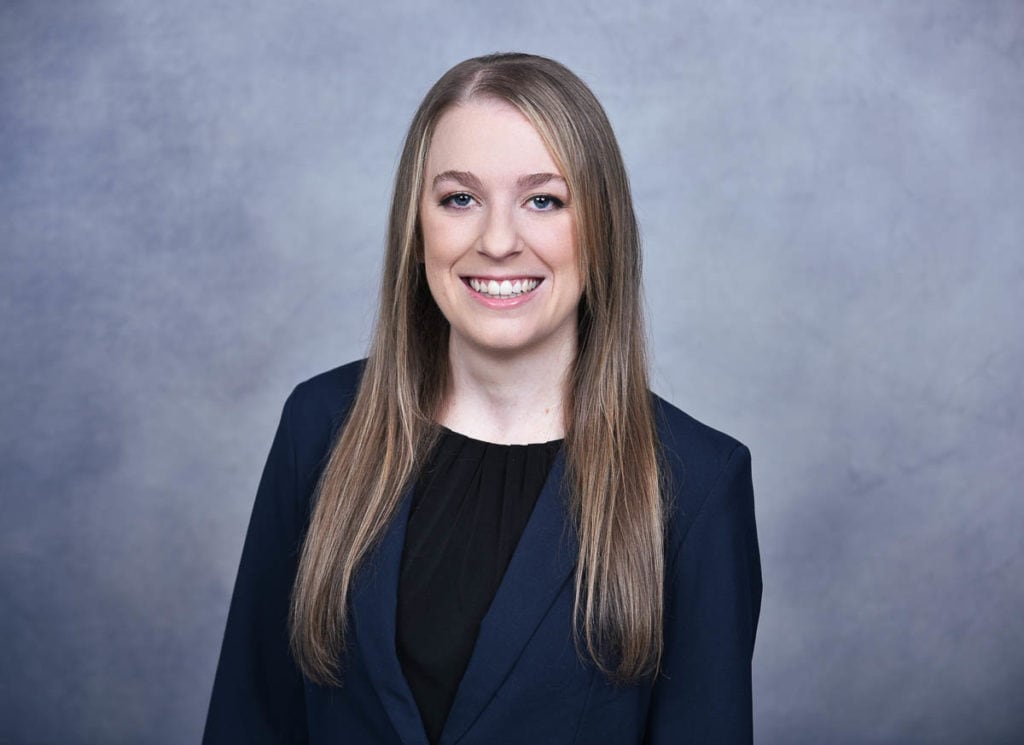
Valerie S. Christian’s practice is dedicated to personal injury claims and litigation, employment matters, contract litigation, as well as some appellate work. She has represented clients throughout all phases of their claims, from negotiating with insurance adjusters to appealing cases in the Nevada Supreme Court.
Valerie was born and raised in Las Vegas. In 2017, she completed the dual degree program at the University of Nevada, Las Vegas for her Juris Doctor and Master of Business Administration. While completing the dual degree program, she served as articles editor of the UNLV Gaming Law Journal, competed nationally on the William S. Boyd School of Law moot court team, and served as a student attorney in the Thomas & Mack Legal Clinic. During her second year of law school, Valerie came to work for The Bourassa Law Group as a law clerk and subsequently joined the firm as an associate attorney in 2018.
Valerie is admitted to practice in all state courts in Nevada and Colorado, as well as the United States District Court for the District of Nevada.
FREQUENTLY ASKED QUESTIONS
The most common motorcycle injury is a broken bone, typically in the arm or leg. Other common injuries include road rash, sprains and strains, and head and neck injuries.
Personal injury claims can take a long time to resolve because of the complexity of the case and the amount of evidence that needs to be gathered. In addition, insurance companies may try to delay the process in order to reduce their liability. If you feel that your case is taking too long, it is important to speak with your attorney about your concerns.
A personal injury lawyer is a type of lawyer who provides legal representation to those who have suffered a physical or psychological injury as a result of the negligence or wrongdoing of another person, company, government agency, or other entity. Personal injury lawyers specialize in tort law, which covers civil wrongs and damages that occur as a result of negligence or intentional acts. They typically handle cases involving car crashes, product liability, slip and fall accidents, dog bites, and more.
Yes, you may have to pay your medical bills from a personal injury settlement. Depending on the terms of the settlement, you may be required to use a portion of the settlement funds to pay for medical expenses related to the injury.
The best way to find a personal injury lawyer near you is to search online for local attorneys. You can also ask friends, family, and colleagues for recommendations. Additionally, you can contact your local bar association or state bar association for a list of qualified personal injury lawyers in your area.